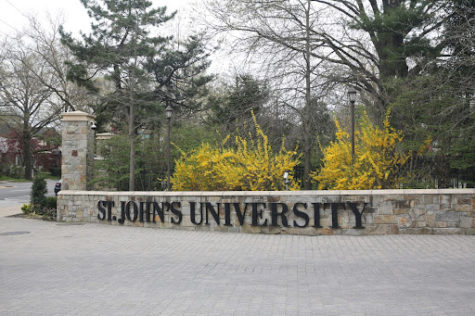
St. John’s University introduced a new major to the St. John’s College of Liberal Arts and Sciences: Critical Race and Ethnic Studies (CRES), following the launch of the Institute for CRES in Oct. 2021 and the CRES minor in the spring 2021 semester. The major is officially available in the Fall 2022 semester.
The work of the research institute is grounded in contributing to the global movement of acknowledging and ending systematic racism. CRES seeks to instruct students on topics including class, gender, race and sexuality through an interdisciplinary curriculum. Those who obtain this new Bachelor of Arts are said to “graduate with a skill set focused on enacting social change on the local and global scale.” It is the intention of the institute to provide a platform for essential discussions of race which will inform and support the students and faculty who comprise the CRES major.
The significant accomplishment of forming this major could not have been met without the advocacy of the student body. “What made CRES possible was students essentially expressing demand for a more inclusive curriculum,” says Dr. Natalie Byfield, Founding Director of the CRES program and Director of the CRES institute. Dedicated faculty members took notice of this interest and banded around the students, bringing the cause to the attention of the administration. Not only does the inclusion of the major realize the needs of the students but it also serves to fulfill the University’s mission to “not only to be excellent professionals with an ability to analyze and articulate clearly what is, but also to develop the ethical and aesthetic values to imagine and help realize what might be.” The St. John’s goal of continued progress and development is acknowledged through this major.
Both the CRES major and research institute embody the University’s commitment to being an anti-racist institution. Pursuing this aim includes reaching beyond the gates of the school and developing partnerships with people and organizations to build a mutual way of interaction that works to redress the problems of systemic racism.
The institute is dedicated to outside collaboration. The University has developed a grant program to fund community projects to delve into specific issues which spark interest and further important conversations. Their research partnerships focus on “the life experiences of people from Latin America, Africa, Indigenous lands, Asia and Oceania in order to re-distribute power in the knowledge production process.”
The major will give students the opportunity to produce a capstone project and apply their lessons to real world scenarios through a required internship. When asked what about the program she is most excited for, Dr. Byfield describes her optimism about its continued growth, and the potential for CRES to have its own department in the St. John’s College of Liberal Arts and Sciences.
Byfield, along with other faculty involved with the program see it as intrinsic to the mission of the University to ensure that students have the opportunity to experience a curriculum that teaches them and allows them to engage with parts of history that come from diverse perspectives, and how the afterlife of these historical moments affects their own lives. Dr. Byfield expresses her belief that centering the voices of people who have been racially and ethnically marginalized can have a transformative impact on a student’s life.
While the creation of this major has received great support from the University, it is not to say there won’t be learning curves. “Despite its interdisciplinarity, CRES is a discipline,” Dr. Byfield explains. The process of applying the lenses of other subjects, such as sociology or english, to the CRES material can make it challenging for people to view it as an independent discipline. With the creation of the new CRES major and pre existing minor, a sense of progress and direction becomes an integral part of the University’s ecosystem, and is a crucial stepping stone into a bright future for St. John’s.







